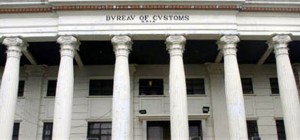MANILA, Philippines—As the COVID virus mutates and continues to pose health risks amid the prolonged pandemic, the country’s chief economist is pushing for yearly booster shots which the government can still provide for free next year but would have to be partly shouldered by the private sector by 2023.
The government may also have to give away movement perks to the vaccinated while penalizing those who opted to not be jabbed, Socioeconomic Planning Secretary Karl Kendrick Chua told alumni of the Asian Institute of Management (AIM) virtually on Wednesday night (Dec. 1).
“It’s good that boosters are already approved for a big part of the population. We prepare boosters for the next two years, but maybe starting 2023, the private sector could share in the cost, especially if it will be given commercial approval,” said Chua, who heads the state planning agency National Economic and Development Authority (Neda).
The Food and Drug Administration (FDA) already approved booster shots for all adults.
The government will borrow at least $800 million from multilateral lenders like the World Bank, the Asian Development Bank (ADB), and the Asian Infrastructure Investment Bank (AIIB) before this year ends for boosters as well as pediatric doses for kids under the expanded mass vaccination program.
The government targets to inoculate 70 million adults this year to achieve herd immunity, but the Philippines lagged behind its Asean neighbors as only about two-fifths of its population had been fully vaccinated to date.
Many rural areas also lagged behind their urban counterparts’ vaccination rates. “Let’s remove all the barriers that hinder many from getting vaccinated,” Chua said.
In his presentation, Chua said this can be done by “expanding vaccination sites, including work sites and schools; removing artificial barriers; allowing firms to use their vaccine stock; and using technology to reduce the wait and processing time.”
For Chua, “incentives and penalties for vaccination, I think, are crucial, and many countries are moving towards that.”
Specifically, Chua’s presentation said the vaccinated could enjoy “free movement,” while those unvaccinated may be subjected to regular testing and quarantine “at [their] own expense.”
Finance Secretary Carlos Dominguez III, who heads President Rodrigo Duterte’s economic team, earlier said he was amenable to the private sector’s proposals to allow more mobility and give perks to the vaccinated.
Also, Chua said “we have to prepare vaccinating children as young as three years old, and it’s important that when schools do open, we vaccinate as many as we can in the schools.”
Chua’s presentation said vaccination among children should be expanded to ages 5 to 17, and it could be “more effectively done in schools when they reopen in January 2022.”
At present, the Philippines has about 32.8 million children aged between three and 17, Chua’s estimates showed.


